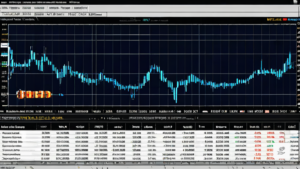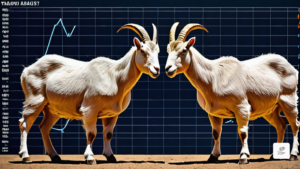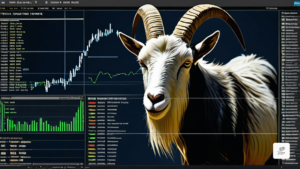The Art of Arbitrage in Futures Trading: A Comprehensive Guide

Introduction to Arbitration in Futures Trading
In the trading landscape, arbitrage shines as an ingenious strategy that allows traders to capitalize on price discrepancies across different financial instruments. Futures spread trading is a particularly effective variation of this strategy, designed to minimize risk and maximize potential profits.
What is a Futures Spread?
A futures spread is a trading technique that involves the simultaneous purchase of one futures contract and the sale of another, with the aim of exploiting a price difference between them. This technique is often used to reduce risk and take advantage of inefficiencies in the pricing of one or more instruments.
Types of Future Spreads
There are several types of futures spreads, each with its own unique characteristics and strategies. The most common types include:
Spreads Inter-Commodity
Inter-commodity spreads involve trading futures contracts of different commodities, with the same expiry month. For example, a trader could buy a corn futures contract and sell a wheat futures contract, both expiring in December.
Spreads Intra-Commodity
Intra-commodity spreads involve trading futures contracts of the same commodity but with different expiration months. For example, a trader might buy a March corn futures contract and sell a December corn futures contract.
Commodities Product Spreads
Commodity product spreads involve trading futures contracts of a raw material and its finished product. For example, a trader might buy a crude oil futures contract and sell a gasoline futures contract.
Advantages of Spread Trading Futures
Spread trading in futures offers several advantages over trading individual futures contracts:
Reduced Risk
When trading futures spreads, traders can significantly reduce their systemic risk, since both legs of the trade are equally affected by external events.
More Predictable Price Movements
Futures spreads make it easier to predict price movements between different contracts as they tend to react similarly to market changes.
Lower Margin Requirements
Due to the lower risk involved, futures spreads typically have lower margin requirements than outright futures contracts, allowing traders to trade with more capital.
Accessibility for Beginners
Futures spread trading is an excellent option for beginner traders, as it removes systemic risk, allowing them to learn and trade without fear of significant losses.
Disadvantages of Spread Trading Futures
While spread trading futures offers advantages, there are also some disadvantages:
Highest Commissions
Futures spread trades involve both a buy and a sell, doubling the trading commissions.
Limited Liquidity
Futures spreads can have lower liquidity than other instruments, making it more difficult to enter and exit positions quickly.
Strategies for Trading Futures Spreads
There are several effective futures spread trading strategies:
Gold Bull Spread
This strategy involves buying a futures contract for a nearby month and selling a contract for a distant month, betting on a rise in prices in the short term.
Gold Bear Spread
This strategy is the opposite of the Gold Bull Spread, betting on a decrease in prices in the short term by selling a contract for a month closer and buying a contract for a month further out.
Examples of Futures Spread Trading
Let’s consider some examples to illustrate how futures spreads work:
Example 1: Wheat Spread
A trader buys an August wheat futures contract at $5.25 per bushel and sells an October wheat contract at $5.65 per bushel. If the price of the August contract increases faster than the price of the October contract, the trader makes a profit.
Example 2: Soybean Spread
A trader buys a March soybean futures contract at $875.0 and sells a September contract at $883.0. If the spread narrows from -8 to -5 in March, the trader makes a profit.
Conclusion
Futures spread trading is an effective strategy to capitalize on price discrepancies in the commodities market. By reducing risk, enhancing predictability, and providing opportunities for beginners, futures spreads offer an attractive alternative to trading individual futures contracts. However, understanding the advantages and disadvantages, as well as trading strategies, is essential to successfully navigate this arena.







